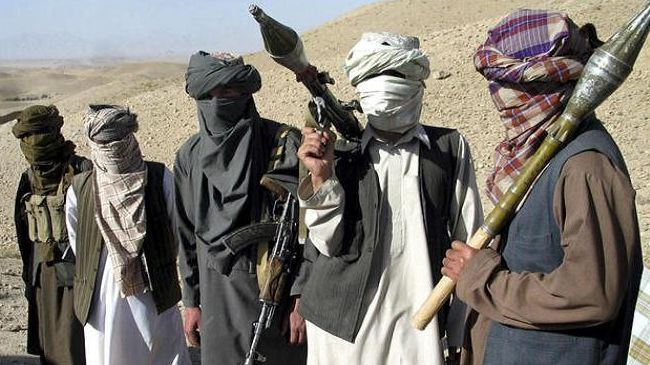Afghan taliban on Summer Offensive
Afghan Taliban

NEW DELHI: The Taliban kicked off its annual summer offensive this week, slaughtering over 30 soldiers, eight of whom were beheaded, in Afghanistan’s northeastern province of Badakhshan.
“More than 70 army troops were serving in different check posts in Jurm district, they were (either) killed, (or) abducted by militants or hid in the caves to survive,” Zalmai Mujaddadi, representative of Badakhshan province to Lower House told the Anadolu Agency. “Militants have beheaded eight soldiers in ISIS's style and have sent the bodies back to the government.”
The assault marks the first grim battle for Afghanistan’s security forces, now battling insurgents largely alone as a majority of US-led foreign troops ended their combat mission in the country at the start of the year.
It also follows news of a peace dialogue between the Taliban and the Afghan government. Afghan President Ashraf Ghani recently said "the grounds for peace have never been better in the last 36 years,” as reports indicated that the Taliban -- for the first time in 13 years -- had, under the pressure of Pakistan, agreed to peace talks with the Afghan leadership.
The timing was important as the reports emerged before the start of the summer fighting season, sparking hope that Afghanistan could be witness to a more peaceful summer as Taliban insurgents enter a dialogue process and foreign troops depart.
However, the dialogue seemed set to fail before it even commenced. One reason for this was the White House’s announcement that the United States will maintain its current 9800 troops in Afghanistan through the end of 2015, as opposed to an earlier plan of cutting the number to 5500. The Taliban reacted sharply to the statement with Taliban spokesman Zabihullah Mujahid saying, “This damages all the prospects for peace, … This means the war will go on until they are defeated.”
Although the US’ announcement no doubt contributed to the talks failing, other factors would have also made the talks a difficult proposition. For one, the rift between the top two leaders of the militant group. The two in question are political leader Akhtar Mohammad Mansour, who favors negotiation, and battlefield commander Abdul Qayum Zakir, a former Guantanamo Bay detainee, who opposes any dialogue with the Afghan leadership. Sources state that the two met recently to address their personal differences, but no headway could be made on the issue of talks, with Zakir of the view that the Afghan government was illegitimate and that real power remained with the US any way.
The announcement of the change in plans of troop withdrawal tilted the position in favour of Zakir, with the Taliban command being clear from the start that the removal of foreign troops would be one of the prerequisites for the commencement of talks.
The losers here are -- as always -- the people of Afghanistan, as civilian casualties continue to rise. The UN Mission in Afghanistan has said that the number of civilians killed or wounded in the troubled country climbed by 22 percent in 2014 to reach the highest level since 2009.
The UN agency documented 10,548 civilian casualties in 2014, the highest number of civilian deaths and injuries recorded in a single year since 2009. They include 3,699 civilian deaths, up 25 per cent from 2013 and 6,849 civilian injuries, up 21 per cent from 2013. Since 2009 -- when UNAMA began tracking casualties -- the armed conflict in Afghanistan has caused 47,745 civilian casualties with 17,774 Afghan civilians killed and 29,971 injured.
If the start of the 2016 summer offensive if anything to go by, the situation in Afghanistan is only going to get worse.



